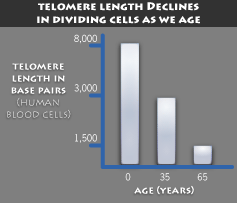
Here's why its good to bank your stem cells early.....
The latest article to cause a buzz amongst the scientific community because of its clinical implications was announced recently in Nature by Dr. Norman E. Sharpless of the University of North Carolina, Dr. Sean J. Morrison of University of Michigan and Dr. David T. Scadden of Harvard Medical School.
The main finding was by Dr. Sharpless's team who had genetically engineered a mouse strain with a knock out (ie the gene no longer functions) of the gene that codes for a protein known as p16-Ink4. The reason why this particular protein is of interest and importance lies in its function. p16-Ink4 has been established to be part of a family of proteins that protect cells and suppress tumours (think of the function of the "Oracle" in the film 'the Matrix').
ROLE OF p16-INK4
In the body, cell growth, division and death is a very tightly controlled and highly regulated process which as yet has to be fully understood. Controlled by many growth promoters and inhibitors, some genes (proto-oncogenes) encode proteins that promote cell proliferation and some genes encode proteins that inhibit this cycle -and instead promote cell death- called tumour suppressor genes. p16-Ink4 belongs to the tumour suppressor group of proteins which protect the cell from unplanned cell divisions and act as our body's own anti-cancer program by inhibiting the division and production of new cells.
THE EXCITING DISCOVERY
As a result of the work from 3 separate research groups, all groups confirmed that the amount of p16-Ink4 is greatly increased with age. The protein is up-regulated to prevent cancer formation in older individuals but is equally effective in blocking stem cell division- hence reducing the rate of regenerative capability in the body. This implies that if the production in p16-Ink4 in stem cells, perhaps other cells can still remain on course but our regenerative capacity can continue. Furthermore, if this pathway can be manipulated then perhaps cells and tissues may be able to regenerate more quickly and perhaps without the restriction of "age".
However, the scientist do not yet know what stimuli makes cells increase their production of p16-Ink4 nor exactly how much and when. They also do not yet know if increasing the protein will result in early cell death.
YOUNGER ALWAYS BETTER THAN OLDER
This finding may explain why older patients do not do as well in bone marrow transplants as younger ones, supposed Dr. Morrison and adds that the robustness of younger people's cells was already well known.
"The cells of a 70-year-old produce 10 times as much of the Ink4 protein as those of a 20-year-old, Dr. Sharpless said".
A good reason to bank your stem cells early!
I wonder if they could take a look at cord blood stem cells and see what levels of p16-Ink4 proteins are at vis-a-vis a 16 or 40 year old's peripheral blood stem cells. I think the team at StemLife would be happy to provide our blood stem cells for this purpose! :)




No comments:
Post a Comment